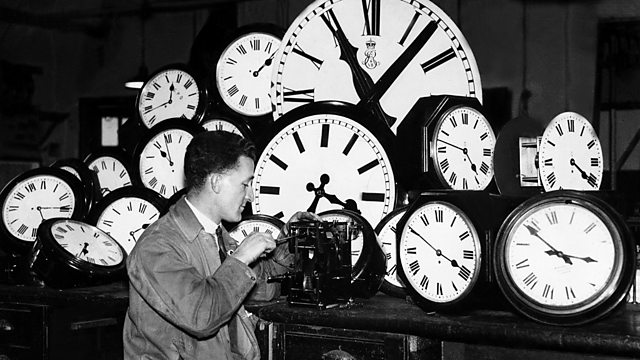The Measurement of Time
Melvyn Bragg and his guests discuss the measurement of time and the various methods used for doing so over millennia of human history.
Melvyn Bragg and his guests discuss the measurement of time. Early civilisations used the movements of heavenly bodies to tell the time, but even in the ancient world more sophisticated timekeeping devices such as waterclocks were known. The development of mechanical clocks in Europe emerged in the medieval period when monks used such devices to sound an alarm to signal it was the hour to pray, although these clocks did not tell them the time. For hundreds of years clocks were inaccurate and it proved hard to remedy the problems, let alone settle on a standard time that the country should follow. It was with the advent of the railways that time finally became standardised in Britain in the mid-19th century and only in 1884 that Greenwich became the prime meridian of the world. Atomic clocks now mark the passing of the days, hours, and minutes and they are capable of keeping time to a second in 15 million years. With:Kristen LippincottFormer Director of the Royal Observatory, GreenwichJim BennettDirector of the Museum of the History of Science at the University of OxfordJonathan BettsSenior Curator of Horology at the Royal Observatory, GreenwichProducer: Natalia Fernandez.
Last on
More episodes
Previous
Broadcasts
- Thu 29 Mar 2012 09:00Βι¶ΉΤΌΕΔ Radio 4 FM
- Thu 29 Mar 2012 21:30Βι¶ΉΤΌΕΔ Radio 4
Featured in...
![]()
Waiting Games
A selection of clips and programmes exploring time, waiting and procrastination
![]()
Science—In Our Time
Scientific principles, theory, and the role of key figures in the advancement of science.
In Our Time podcasts
Download programmes from the huge In Our Time archive.
The In Our Time Listeners' Top 10
If you’re new to In Our Time, this is a good place to start.
Arts and Ideas podcast
Download the best of Radio 3's Free Thinking programme.
Podcast
-
![]()
In Our Time
Melvyn Bragg and guests discuss the ideas, people and events that have shaped our world.




